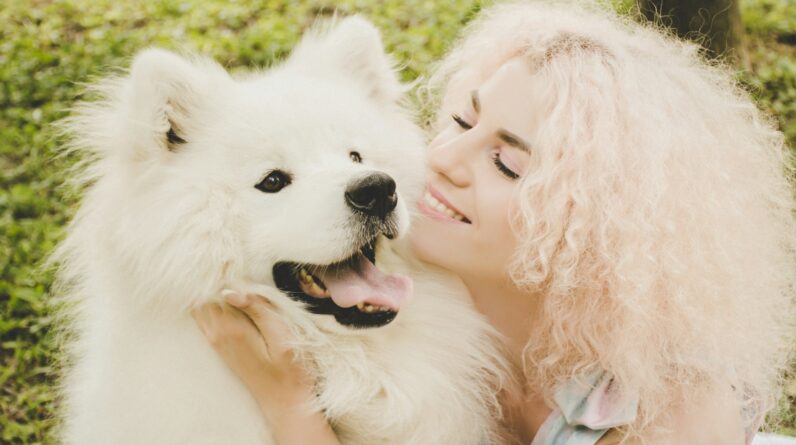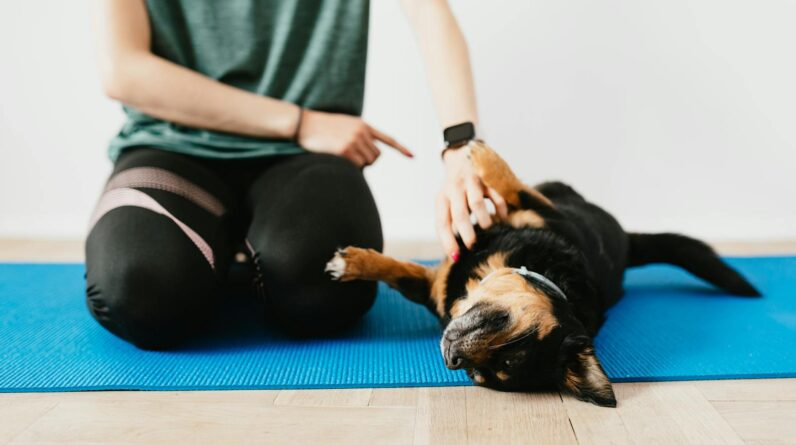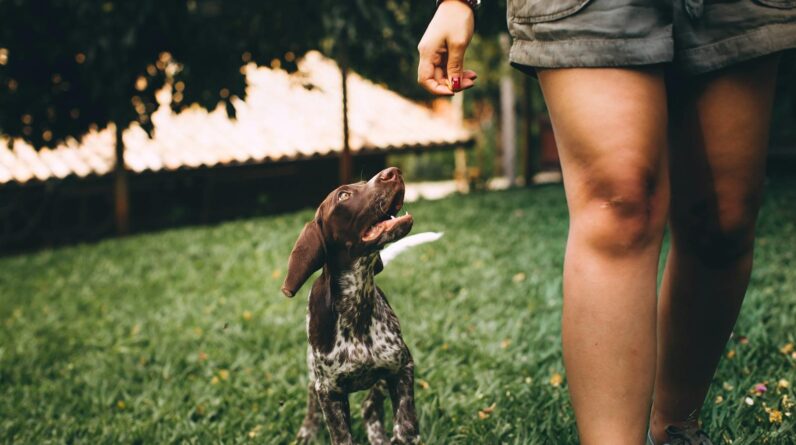
Got a Dog That Won’t Stop Barking? Let’s Fix That!
Hey there! Do you have a dog that loves to bark a lot? I mean, a whole lot? Sometimes, dogs bark so much it can make you feel a bit crazy, right? But don’t worry. I’ve got some cool tips to help you and your dog chill out a bit with the barking.
Find Out Why Your Dog is Barking So Much
First things first, dogs bark for loads of reasons. They might be saying “Hey, I’m bored!” or “I saw a squirrel!” or maybe even “I’m scared!” Figuring out why your dog is barking is like being a detective. You’ve got to look for clues. Is your pup alone a lot? Does the barking start when they see other animals outside?
Give Your Dog Plenty of Exercise
Dogs need to run around and play. It’s like when you have so much energy you just have to do something! If dogs don’t get to burn off energy, they might start barking to let out all that extra pep. Take your dog for walks, play fetch, or let them run around with doggy friends. A tired dog is usually a quiet dog.
Teach Your Dog Some Cool Commands
Teaching your dog to understand words like “Quiet” or “Enough” is super helpful. You will need treats for this, so get ready to make your dog’s day! When they start barking, say “Quiet” in a calm voice. If they stop barking, even for just a second, give them a treat. They’ll start to learn that being quiet gets them yummy treats!
Ignore the Barking When You Can
Sometimes, dogs bark to get attention. And let’s be real, it works! But if you can, try to ignore them when they’re barking for no good reason. This means no talking to them, no petting, and no eye contact. It’s tough, but it tells your dog that barking won’t get them what they want.
Okay, I know what you’re thinking. “Ignore my dog? But they’re barking so much!” Yeah, it’s hard. But if you can stick with it, after a while, they’ll see barking doesn’t help and they’ll be quiet. Then, you give them attention. It’s like saying “Hey, when you’re quiet, we can hang out.”
Get Some Cool Toys and Puzzles
Did you know there are toys that can keep dogs busy so they forget about barking? It’s true! Things like chew toys, puzzle toys where they have to work to get treats, or toys they can chase around can keep your dog’s brain and mouth busy with something other than barking.
Make a Chill Spot for Your Pup
Dogs can get stressed or scared, just like us. Having a special place where they can feel safe is like having a cozy hideout. You can use a crate or a bed with some comfy blankets and their favorite toys. When things get too wild or loud and your dog starts barking, they can go to their chill spot to calm down.
Get Help from a Trainer If You Need It
Sometimes, even when you try all these tips, a dog might still bark a lot. That’s okay! It doesn’t mean you failed. It just means that you might need a helping hand. Dog trainers are like teachers for your dog. They’ve got skills and know all sorts of tricks to help your dog learn to be quiet. It’s really cool to watch them work!
Dealing with a barking dog can be tough. But remember, your dog isn’t trying to be annoying. They’re just trying to tell you something or they don’t know how else to act. Be patient, try these tips, and give your dog lots of love. They’ll get the hang of it, and you’ll both be happier for it!
What can I do to stop my dog from barking at everything?
First things first, figure out what triggers your pup. It might be seeing people, other animals, or moving objects. Once you know the triggers, you can manage the environment—like drawing the curtains—or distract your dog with toys or training games just before the barking starts.
Also, reward the quiet moments. When your dog’s not barking, offer treats and praise. Consistency is key. With practice, your dog will learn that silence brings tasty rewards and barking—well, not so much.
Is it a good idea to use a bark collar to train my dog to be quiet?
Bark collars can be controversial. Some folks swear by them, others say they’re harsh. The truth is, it’s about finding what works for your dog. Positive reinforcement often does the trick—treats and love for good behavior rather than punishment for the bad.
If you do go the collar route, consult a professional trainer first. They can provide advice on whether it’s appropriate and how to use it safely, making sure not to harm your four-legged buddy’s spirit—or their trust in you.
How can I make my dog stop barking when we have visitors?
It’s all about training them to associate visitors with good stuff. When someone knocks, before they even start their barking symphony, give them their favorite treat or toy. This way, they’ll soon get all excited about the treats, not the doorbell.
Practice makes perfect, so have friends help out by stopping by now and then. Have them reward your pooch too when they’re calm. Over time, your furry friend will get the hint: visitors mean fun, not a bark-fest.
My dog barks non-stop when I’m away. How do I help them stop?
Sounds like your pup might have separation anxiety. It’s tough on them when you’re gone. One trick is to leave them with an item that smells like you—like a worn shirt. It’s comforting, like you’re there in spirit. Also, exercise them well before you leave to tire them out.
Treat-dispensing toys can distract them for hours, too. Plus, consider some obedience training or a doggy daycare if your budget allows. It’s a way for them to socialize and get tired, so they’ll spend more time snoozing than barking.
What’s the best way to teach my dog the ‘Quiet’ command?
First you want to catch them in the act. Let them bark a few times, then say “Quiet” in a calm, firm voice. If they obey, even for a second, boom—give them a treat. If not, repeat but without raising your voice. Stay chill, like it’s all a fun game.
Practice this and with time, they’ll catch on that “Quiet” means “Stop barking, get a treat.” Before you know it, you’ll have a secret silence weapon you can use anytime, anyplace. Remember, patience and consistency are your best pals in this training journey.
Key Takeaways
- Understand why your dog barks – Look at the trigger. Is it boredom, attention-seeking, fear, or perhaps guarding behavior? Knowing this is crucial for the next steps.
- Meet your dog’s needs – Ensure they have enough physical exercise and mental stimulation. A tired dog is often a quiet dog.
- Ignore the barking when it’s for attention – Don’t reward your pooch for unwanted barking. No talks, no touches, no eye contact.
- Use positive reinforcement – Praise and treats can go a long way when they remain silent or obey commands to stop barking.
- Teach the ‘Quiet’ command – Train your dog to understand and respond to the command. Be consistent and patient.
- Control the environment – Remove or block what triggers the barking if possible. If they bark at passersby, try closing the curtains.
- Consider anti-barking devices as a last resort – Devices like bark collars or ultrasonic tools can discourage barking, but they should be used carefully and as a supplement to training, not a replacement.
- Seek professional help – If it’s getting out of hand, don’t hesitate to consult a dog trainer or a behaviorist.
- Remember, the goal is to manage barking, not eliminate it – Dogs will be dogs, and barking is part of their way to communicate.
Final Thoughts
Alright, let’s wrap this up! Dealing with a yappy pup can test your patience, but there’s hope. Remember, the key is figuring out the why behind the bark. Could be boredom, fear, or just a plea for attention. Give your dog the right mix of exercise, training, and love, and you’re on your way to quieter days.
Consistency is your best friend—pun intended! Stick to those training sessions, toss in some mental challenges, and don’t reward the noise. A well-timed “Quiet” command or a distraction trick can work wonders.
Finally, if your dog’s still sounding the alarm non-stop, it might be time to call in the pros. A trainer can offer tailored advice, and hey, never rule out a chat with your vet. Your four-legged pal might have something going on that needs professional attention. Keep calm, bark on (just a little less, please).







